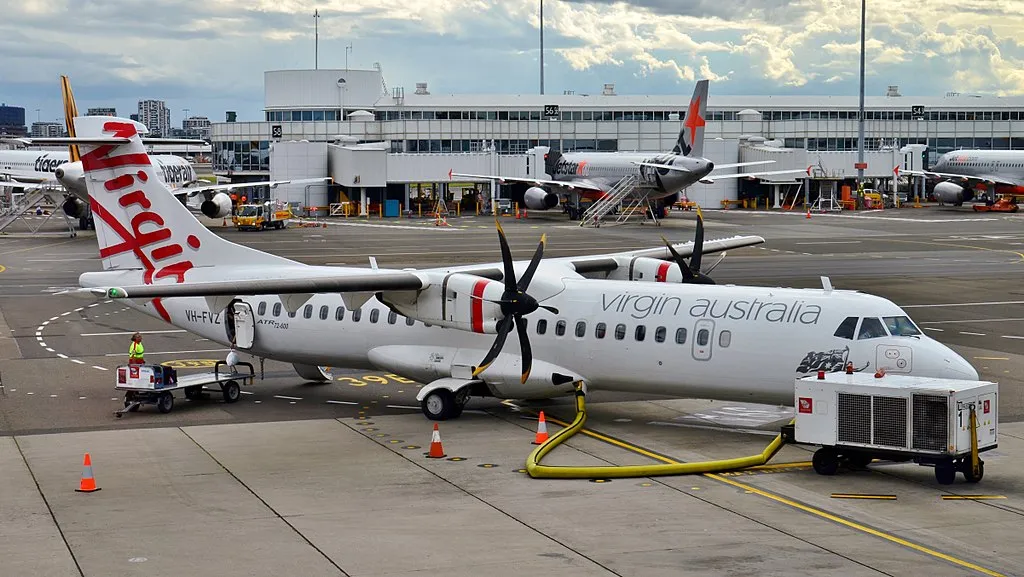
Final bids for Virgin Australia plus a wildcard
Jun 22, 2020

Final bids for Virgin Australia have been submitted as potential buyers rush to secure the airline amid its ongoing restructuring. The bidding process has attracted a mix of established aviation players and new entrants looking to capitalize on the airline's brand and market position. Analysts speculate that the outcome could reshape the competitive landscape of the Australian aviation industry, especially in light of recent disruptions. A wildcard in the mix could be an unexpected partnership or consortium, which may bring innovative strategies to the table, potentially altering the course of Virgin Australia's future.
The bidding process for Virgin Australia has entered its final stages, with significant interest from various parties. As the deadline approaches, potential buyers are refining their offers, each hoping to secure the airline’s future. In this article, we delve into the details of the final bids and explore what a wildcard entry could mean for the outcome.
The Bidding Landscape
As of now, several key players are in the running to acquire Virgin Australia. The bidding process has attracted a mix of strategic investors, private equity firms, and even some unexpected contenders. The "interest in Virgin Australia" stems from its established brand, extensive routes, and the potential to tap into the recovering travel market.
| Bidder | Type of Bidder | Initial Offer | Current Status |
|---|---|---|---|
| Qantas Airways | Airline Competitor | $3 billion | Under Review |
| Private Equity Group A | Private Equity | $2.5 billion | Final Bid Submitted |
| Private Equity Group B | Private Equity | $2.8 billion | Final Bid Submitted |
| Wildcard Investor | Strategic Investor | $3.2 billion | Pending Evaluation |
Key Factors Influencing Bids
The valuation of Virgin Australia is influenced by several crucial factors. Firstly, the "current market conditions" play a significant role in determining the bids. The airline industry is slowly recovering from the impacts of the pandemic, leading to a cautious yet optimistic approach from bidders. Additionally, the operational efficiency and the "brand equity of Virgin Australia" are significant considerations.
Another essential aspect is the potential for "synergies" with the bidders' existing operations. For instance, Qantas may see a strategic advantage in acquiring Virgin Australia to consolidate its market position, while private equity groups might focus on restructuring and optimizing operations for profitability.
The Wildcard Entry
One of the most intriguing aspects of this bidding process is the wildcard investor. This unexpected contender has emerged as a game-changer, potentially shaking up the dynamics of the bidding war. The wildcard investor is rumored to have extensive resources and a solid plan for revitalizing Virgin Australia.
Should the wildcard investor succeed in their bid, they may introduce innovative strategies that could lead to a fresh start for the airline. This could include enhanced customer experience initiatives, technological advancements, and expanded route offerings. The potential for such transformative changes is what makes this wildcard entry particularly exciting to industry observers and stakeholders.
Market Reactions
The market has been abuzz with discussions surrounding the final bids. Investors and analysts are keenly watching how the bids unfold, and the reactions have varied widely. Some view the interest from established airlines like Qantas as a sign of confidence in the market, while others express caution regarding the sustainability of such acquisitions in the long term.
Overall, the competition among bidders highlights the "importance of strategic planning" in the airline industry. With travel demand expected to surge as restrictions ease, the winning bidder will need to position Virgin Australia effectively to capitalize on this trend.
Conclusion: What Lies Ahead
As the deadline for final bids approaches, the outcome remains uncertain. However, one thing is clear: the future of Virgin Australia is at a pivotal point. The bids currently on the table reflect not just financial numbers but also a vision for the airline's future.
With the wildcard investor in the mix, the bidding process has taken an unexpected turn, adding an element of unpredictability. Stakeholders will be watching closely to see how this unfolds, as the chosen bidder will ultimately shape the destiny of Virgin Australia in the years to come.
In summary, the final bids for Virgin Australia represent more than just a transaction; they are a reflection of the evolving landscape of the airline industry and the strategic decisions that will define its future. As potential buyers finalize their offers, the anticipation builds for what could be a transformative chapter in Virgin Australia's legacy.
Related Articles

Explore Thailand: The Best Islands to Visit for Paradise, Adventure, and Relaxation

The Ultimate Guide to the Best Islands in Thailand for Your Next Getaway

Do babies need passports? How to get a passport for a newborn

How to get a U.S. passport fast: here’s how to expedite the process

What is Mobile Passport Control: 5 reasons why you should use it

SENTRI vs. Global Entry: A detailed guide

Do you need a passport to go to the Bahamas? Let’s find out

Do you need a passport to go to Mexico? A detailed guide

Do you need a passport to go to Canada? We got the answer

Do You Need a Passport for a Cruise: An Essential Travel Guide

Booster Seat Requirements: All the Rules to Follow in Your Rental Car

What Are the World’s Most Powerful Passports, and How Does Yours Rank?

How to Take a Passport Photo at Home: A Helpful Guide

You've got to have heart! Southwest's new livery

Your opinion: Should water be free on low cost carriers?

Young women bolder than guys as solo travellers
